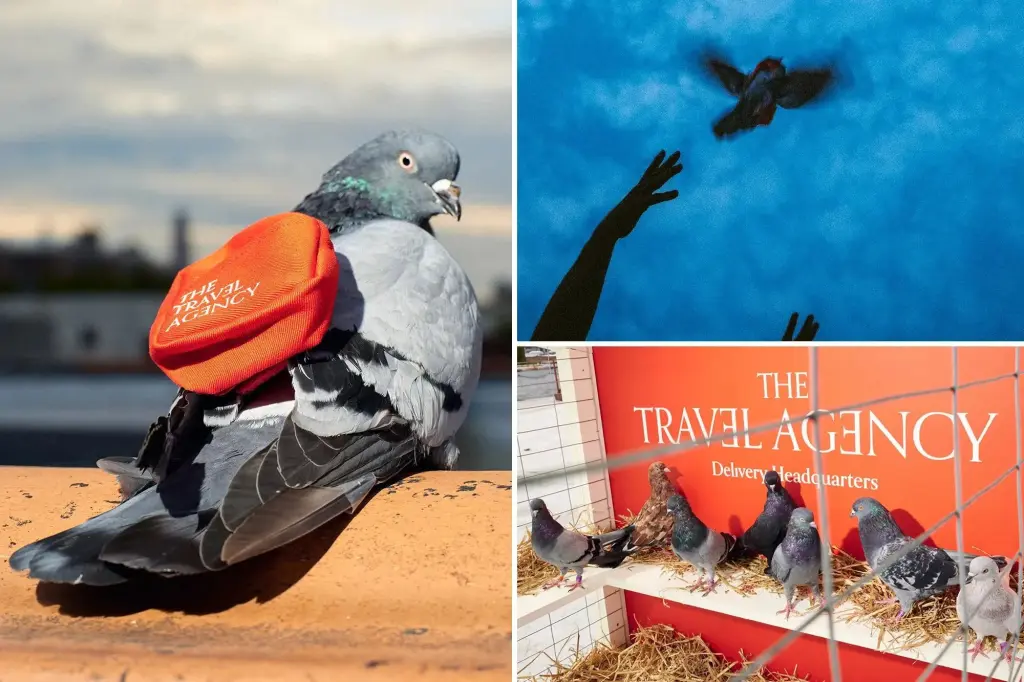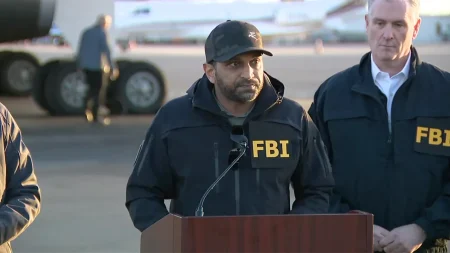A Bird-Brained Marketing Stunt: The Travel Agency’s Fake Pigeon Delivery Service
In what can only be described as an elaborate hoax that ruffled many feathers, a luxury New York City-based cannabis dispensary recently announced the launch of a rather unusual delivery method: carrier pigeons. The Travel Agency unveiled plans for a fleet of 20 pigeons that would supposedly deliver gram-sized cannabis packages to customers across Manhattan and Brooklyn by 2026. Complete with social media videos showcasing a Brooklyn coop, handlers, and training protocols, the marketing campaign quickly gained attention across the city. “As The Travel Agency, it’s only natural we’d explore all modalities of travel for our delivery service, even pigeons,” claimed Arana Hankin-Biggers, company co-founder, in a press release. She added with apparent sincerity, “Being in NYC, we thought there’s no better courier than the ever-present and beloved pigeon.”
The elaborate ruse extended beyond mere press releases. The company erected promotional posters outside their Union Square location advertising “cannabis carrier pigeons,” and viral videos circulated showing pigeons wearing tiny backpacks near their dispensary. The company went so far as to detail how the birds would be trained, claiming they would walk pigeons along delivery routes “so they know where to fly.” They even touted a multi-day trial run with pigeons “completing symbolic delivery routes under handler supervision” and boasted of receiving an “official humane treatment certification.” The campaign was convincing enough that several reputable New York media outlets, including Time Out, Brooklyn Eagle, and Fox 5 New York, reported on the unusual business plan as if it were legitimate.
However, sources familiar with the matter revealed to The New York Post that the entire scheme was nothing more than a marketing stunt. Despite being revealed as fake, the campaign successfully generated significant buzz and media attention for The Travel Agency. The videos of pigeons wearing tiny backpacks became particularly viral on social media, spreading far beyond the dispensary’s regular customer base. The elaborate nature of the hoax—including the detailed coop setup and training protocols—showed just how far the company was willing to go to create a convincing narrative that would capture public attention in New York’s competitive cannabis market.
While some might view the stunt as a creative marketing approach, animal welfare advocates were deeply troubled by the campaign, even after learning it wasn’t real. Megan Walton from the Duchess County-based Pigeons for Miles avian sanctuary expressed her concerns: “I’m glad to know that it’s not real, but it’s still very upsetting to even conceptualize a campaign like this, centering on exploiting pigeons.” Her worries extended beyond the concept itself to the practical implications of the marketing campaign. “Even if it is a joke… how long were these pigeons subject to this campaign? How many days were they taken away from their family flock to be used for this?” she questioned, highlighting legitimate animal welfare concerns that remained unanswered.
Walton’s concerns also touched on the broader ethical implications of using animals for marketing purposes. She worried about where the pigeons came from and their fate after the campaign ended—drawing parallels to other cases of animals being abandoned after publicity stunts, such as the rabbits reportedly abandoned following disgraced faux heiress Anna Delvey’s August photoshoot. The marketing stunt raised important questions about the ethics of using animals in advertising, especially when those animals have a long history of being exploited for human purposes. “I just don’t see the humor in putting pigeons in the center of a campaign like this, to almost mock the fact that they used to be so heavily exploited,” Walton noted, adding that people generally don’t pay attention to pigeons “except to think about other ways to exploit them.”
The Travel Agency’s pigeon delivery hoax serves as a striking example of how far companies will go to stand out in today’s saturated marketing landscape. While the stunt certainly achieved its goal of generating attention and publicity, it also raised serious questions about the ethical boundaries of marketing campaigns. The company didn’t immediately respond to requests for comment about the concerns raised by animal welfare advocates, leaving questions unanswered about how the pigeons were treated during filming and what safeguards, if any, were in place to ensure their wellbeing. As businesses increasingly seek viral moments to capture public attention, this incident reminds us that creativity in marketing must be balanced with ethical considerations, particularly when vulnerable animals become props in a company’s quest for publicity.











